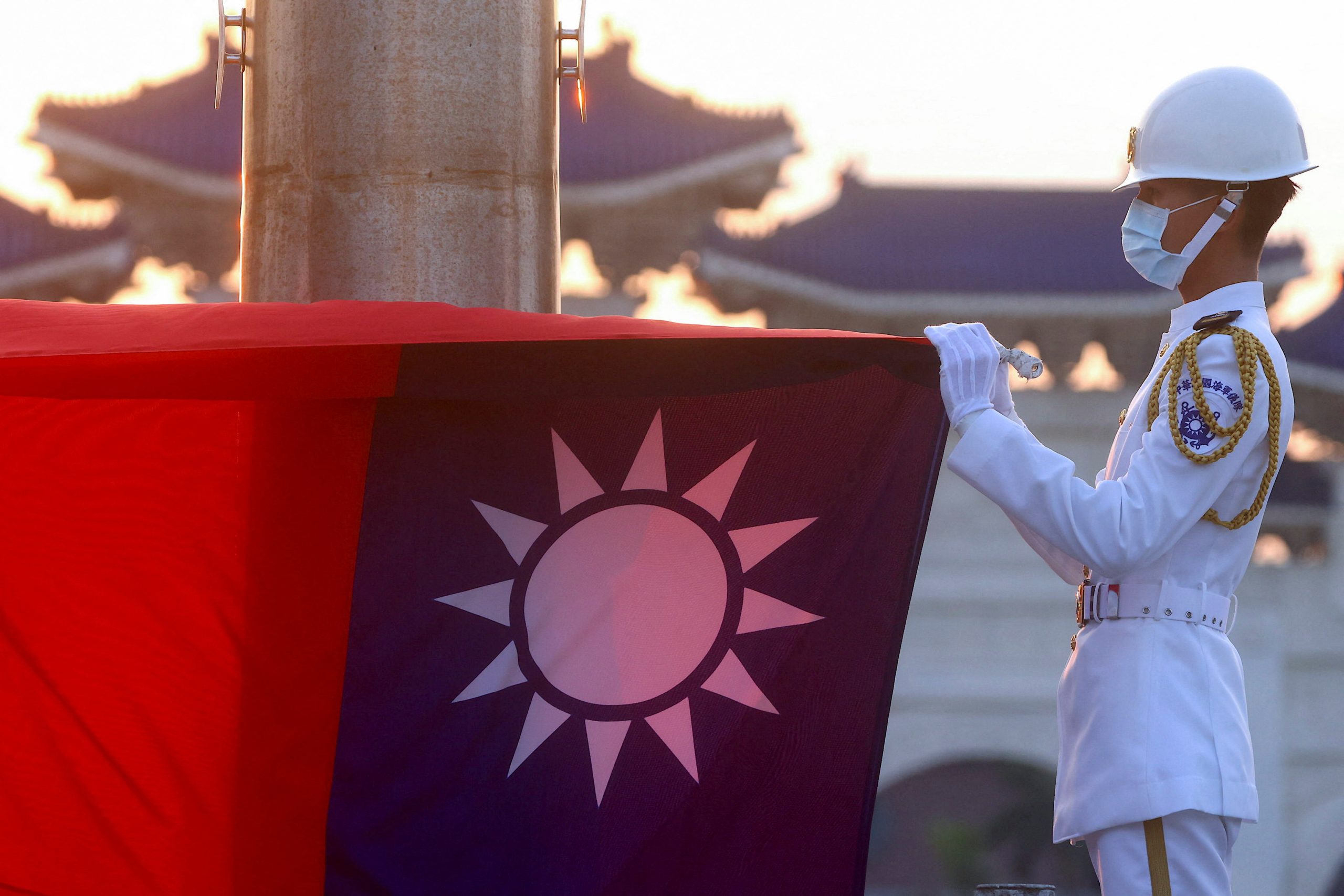
Curt Flewelling, FISM News
[elfsight_social_share_buttons id=”1″]
As tensions between China and Taiwan continue to escalate, U.S. officials have signaled that they are going to proactively help their ally “stockpile” large quantities of munitions in preparation for a possible Chinese invasion.
The stress between the two nations has been at a fever pitch as China has repeatedly crossed a 25-mile line of demarcation called the “median line” in recent months. This line was proposed in 1955 by U.S. General Benjamin O. Davis in the midst of ongoing hostilities in the region.
The line represents a nonbinding, yet largely honored agreement between the two foes. It has been mutually respected for 45 years prior to China declaring in 2020 that there was no such thing as a median line as part of China’s insistence that Taiwan is not an independent nation.
In the wake of several provocative actions toward Taiwan on the part of the Chinese military, the Biden administration approved the sale of $1.1 billion of armaments to the nation. These weapons would include 60 anti-ship missiles, 100 air-to-air missiles, and a $665 million radar warning system.
In addition to defense articles, food, minerals, chemicals, and energy will be in short supply should China embark on an effort to establish a military blockade to choke off Taiwan from the outside world. All sides are no doubt learning from Russia’s attempt to employ this tactic in order to isolate and ultimately dispirit the Ukrainian people.
Although the tactic has had mixed results in Ukraine, it would be far easier to execute in the Pacific, thus the need for a plan to be implemented quickly.
Center for a New American Security fellow, Jacob Stokes told the New York Times, “Stockpiling in Taiwan is a very active point of discussion. The view is we need to lengthen the amount of time Taiwan can hold out on its own as this would be an important step in preventing China from achieving ‘fait accompli’ before U.S. military support can arrive.”
The United States has had a long-standing commitment to help Taiwan should the island nation’s sovereignty be challenged by foreign aggressors. Last month’s sale of military items is simply a continuation of the Taiwan Relations Act, a cold war policy that has been honored by every administration since it was enacted in 1979.
The bill was introduced, “To help maintain peace, security, and stability in the Western Pacific and to promote continued extensive, close, and friendly relations between the people of the United States and the people of Taiwan.”
Since then, U.S. presidents have been strategically vague when articulating China/Taiwan policy. Given the wide-reaching ramifications of a Southeast Asian conflict, this has proven to be wise. However, some feel that President Biden has inadvertently or purposefully waded into dangerous territory with his assertion that the U.S. will defend Taiwan militarily.
In a recent 60 minutes interview, reporter Scott Pelley asked Biden, “So unlike Ukraine, to be clear, sir, U.S. forces — U.S. men and women — would defend Taiwan in the event of a Chinese invasion?” The president’s response was simply, “yes.”
Biden went on to say, “That’s the commitment we made. … The idea that Taiwan can be taken by force, just taken by force, is not just appropriate. It will dislocate the entire region and be another action similar to what happened in Ukraine, and so it’s a burden that is even stronger.”
In a move that has become commonplace, shortly after the gaffe, a White House spokesperson issued a statement walking back the president’s comments, claiming that Biden only meant that the U.S. would provide military equipment to Taiwan in the event of an invasion and did not plan to send in troops to defend the self-governed island, according to multiple reports.
